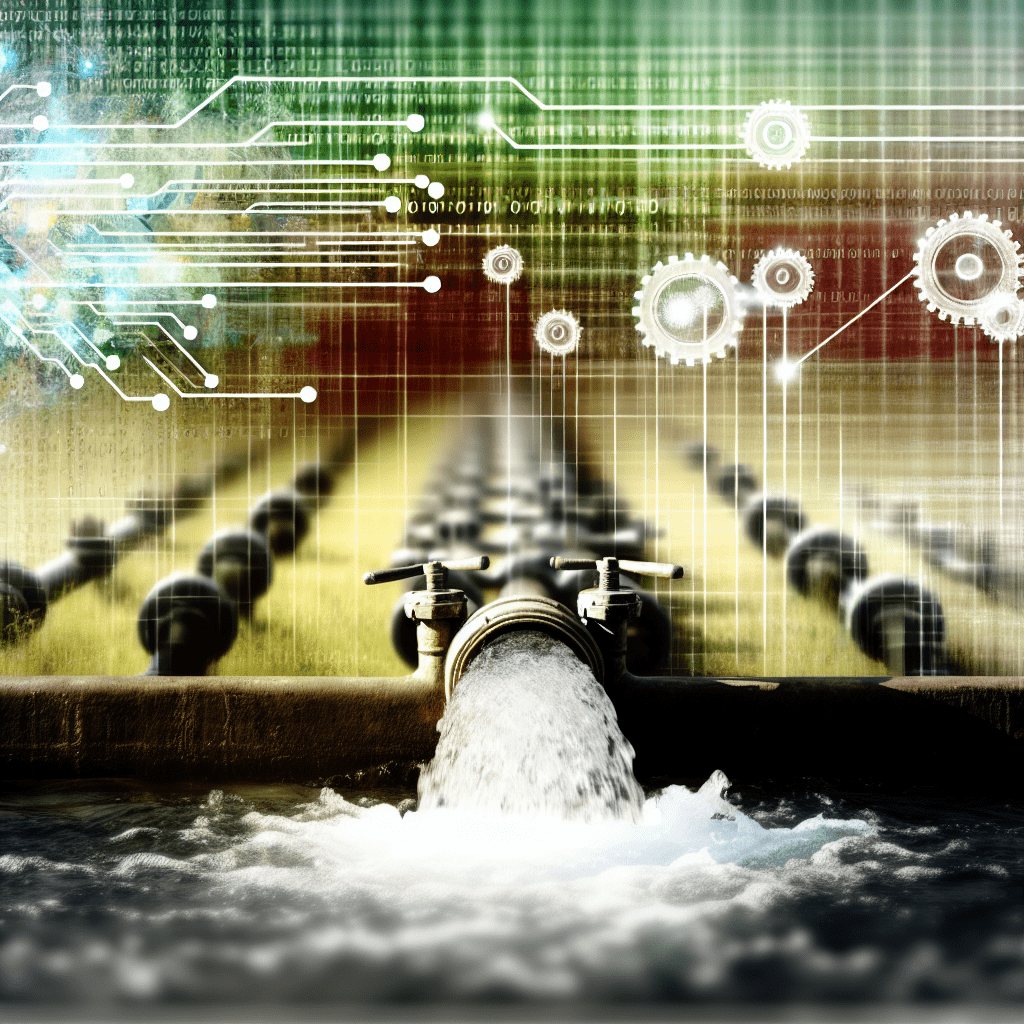Machine learning is a rapidly growing field with potential applications in a wide range of industries, including the management of water distribution systems. In this article, we will explore the current state of machine learning in smart water distribution systems, as well as the challenges and potential future perspectives.
The rise of the Internet of Things and Low-Power Wide-Area Network technology has paved the way for the adoption of smart meters in water distribution systems. This has enabled the collection of large amounts of fine-grained data, providing an opportunity for more efficient and sustainable distribution of water. However, the key challenge lies in how to turn this data into actionable knowledge that can limit water wastage and optimize distribution.
Although the collection of data is currently limited, the potential future impact of utilizing data-driven and machine learning methods is becoming increasingly recognized in both research and industry. This is evident in the numerous scientific works published in recent years. One area that is gaining increasing interest is the use of deep learning for smart water distribution systems, as it has the ability to learn intricate patterns from large datasets.
To provide a comprehensive overview of the current state of research, we conducted an application-oriented survey. By analyzing the characteristics of the data and the operational targets, we have developed a new taxonomy that divides the macro-areas of water management into infrastructure analysis, demand analysis, and water quality monitoring. For each application, we discuss existing methods and their effectiveness.
Furthermore, we also address potential research directions that could further enhance the use of machine learning in water distribution systems. These include federated learning, which allows for collaborative learning without sharing raw data, incremental learning for continuous improvement, probabilistic modeling for better prediction, and explainability to better understand the reasoning behind decisions. We also acknowledge broader issues such as data availability and concerns surrounding privacy.
In conclusion, the use of machine learning in smart water distribution systems has the potential to greatly improve the efficiency and sustainability of water management. However, there are still challenges to be addressed and future research directions to be explored. By continuing to develop and apply advanced machine learning techniques in this field, we can work towards a more efficient and sustainable use of our precious water resources. (Based on information from “Machine learning for smart water distribution systems: exploring applications, challenges and future perspectives” by S. P. Romano, G. L. Foresti, and A. Sperduti. Article URL: http://link.springer.com/10.1007/s10462-024-11093-7)

